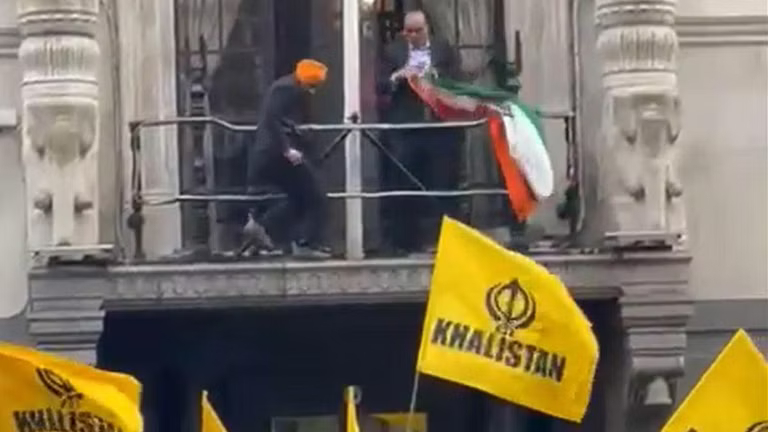NEW DELHI: In 2009, a Sikh IPS officer, who was a part of one of the intelligence agencies, developed inputs on the Khalistani groups and their meeting points in the United Kingdom, including religious places, where the radicals would meet and plan anti-India activities.
These inputs, sources told The Sunday Guardian, were given to the then Home Minister, P. Chidambaram, who was going on a tour of some Western countries, including the United States in September. This visit had come in the wake of the 26 November 2008 Mumbai attacks and the purpose of the minister’s visit was to see the measures that Western agencies were taking to prevent terror attacks on their cities.
There is no confirmation on whether the inputs on the Khalistanis were shared with the relevant agencies in the US and other allied countries, including the UK. However, these religious places still continue to function as hotspots for anti-India propaganda.
As per the 2009 inputs developed by the intelligence officer, the pro-Khalistani groups were arranging funds to organise anti-India propaganda events at gurudwaras in London, Kent, Leicester, Derby, Coventry and Wolverhampton, where they were exhorting the Sikh community to support Khalistan issues. They were also organising demonstrations at the Indian High Commission, London, in support of Khalistani issues.
The officer had found that Babbar Khalsa International (BKI), a proscribed organisation, was raising funds and sending that to their handlers in Pakistan, from where the funds were being sent to other entities.
“Around 30,000 pounds were collected by the organisation around March 2005 and sent to Pakistan. Then, 3,200 pounds were collected during the Annual Conference of British Sikh Council (BSC), which is linked with BKI, at Guru Nanak Gurdwara, Birmingham on 10 July 2005, which was sent to Pakistan in November 2005,” the officer had stated.
The officer had further found that the “Sikh Federation (SF), U.K. Babbar Khalsa International (BKI), UK chapter of the Shiromani Akali Dal (SAD-A), Khalistan Government in Exile (KGE), International Sikh Youth Federation (ISYF-B), Dal Khalsa International (DKI) and Council of Khalistan (COK) were continuing to organise religious programs/martyrdom conferences at the following Gurudwaras to commemorate those who had sacrificed their lives for the ‘Khalistan cause’ highlighting pro-Khalistani issues and indulging in anti-India propaganda.”
The religious places that were found to be acting as hubs for these radical elements were situated at Roseberry Avenue located at East Ham-London, Newcastle Upon-Tyne, Gravesend-Kent, Holy Bones-Leicester, Derby, Coventry and Sedgley Road, Wolverhampton.
The other organisations that were active in London and Washington at the time, as per inputs, included the UK Federation of Sikh Organisation (FOSO), World Muslim Sikh Federation (WMSF) and British Sikh Council (BSC).
These entities, as per the dossier, would stage demonstrations outside Indian High Commission, London, on various issues including condemning the Nanavati Commission report and human rights violations in Punjab.
On 19 March 2023, the Indian High Commission in London was attacked, which was followed by pro-Khalistan protesters attempting to set fire to India’s consulate in San Francisco in the US on the same day. Another pro-Khalistan protest was held outside the Australian Parliament by Khalistani supporters at Canberra on 19 March.
According to officials, such actions by Khalistani elements were being carried out in a coordinated manner and were likely to increase in the coming days. “The Khalistani support system is very strong in the US and the UK and this cannot happen unless some tacit support is provided by the respective host countries. We have limited options when it comes to handling and tackling such elements in foreign countries. And despite our best efforts, it appears that these elements are getting patronage from the establishment in these countries.”
Last year in April, the then British Prime Minister Boris Johnson during his maiden visit to India, had stated that his government had set up an anti-extremist task force to handle the Khalistani elements in the country who were regularly indulging in anti-India activities from UK. He had stated that the UK had “zero tolerance” for Khalistani elements. However, as recent events and past information collected by Indian agencies show, the UK continues to be one of the most prominent hubs for the Khalistani forces.
London continues to nurture Khalistani elements
- Advertisement -

